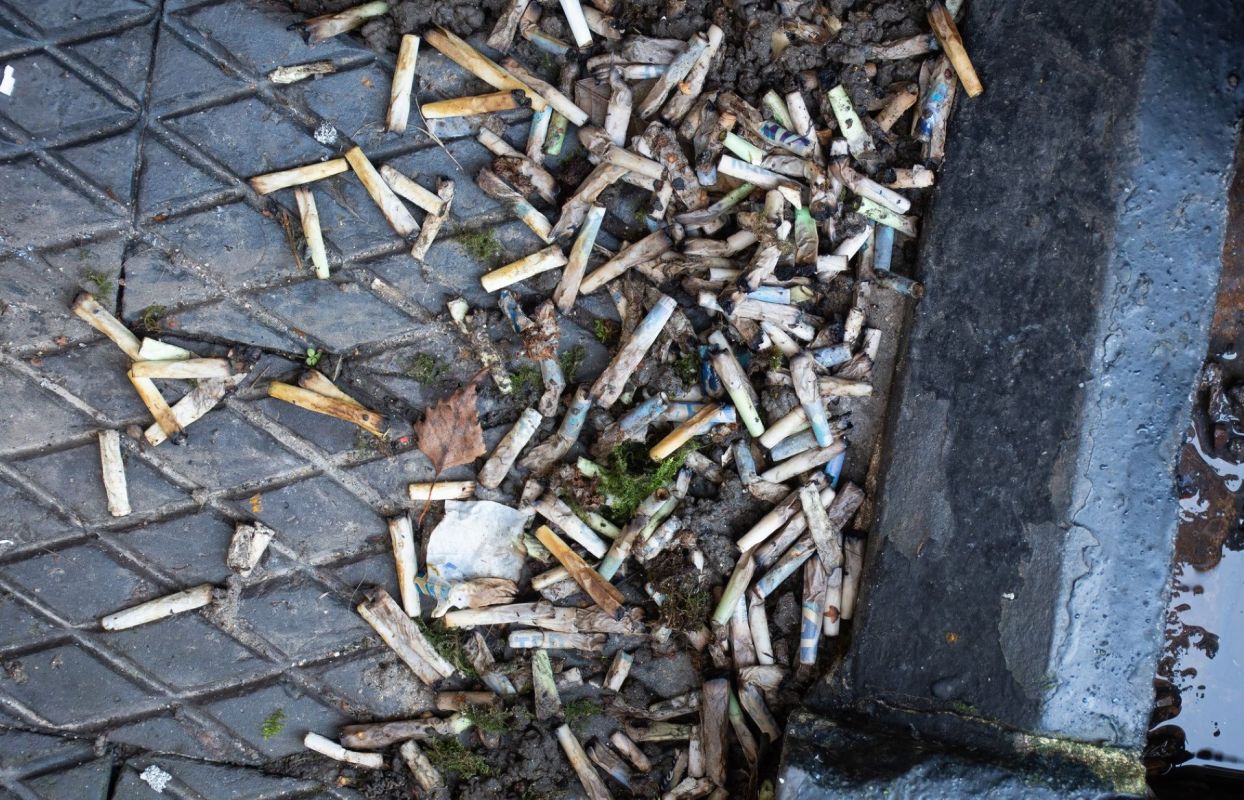The adverse impacts of cigarettes on human health are plenty, but a 2023 study found that cigarettes also release harmful toxins into the environment.
Researchers from the University of Gothenburg found that apart from being one of the most common forms of litter, cigarette butts (or filters) also leak thousands of toxins and plastic fibers into the surrounding environment — and they are specifically toxic to aquatic larvae.
When researchers tested the impact of toxins in cigarette butts, both before and after smoking, on aquatic mosquito larvae, they found that the presence of such chemicals led to a 20% higher mortality rate. Earlier research also suggests that these toxins can be detrimental to the health of many other aquatic organisms.
"The filter is full of thousands of toxic chemicals and microplastic fibers, so it's not just any piece of plastic that's being discarded into the environment. It's hazardous waste," said Bethanie Carney Almroth, professor of ecotoxicology at the University of Gothenburg, in a press release.
Mosquitoes serve an important role in ecosystems as pollinators and food sources for other organisms. Mosquito larvae contribute to the aquatic food supply as food sources for aquatic animals, such as dragonfly larvae and fish.
The study also observed the behavior of smokers in Gothenburg when it came to discarding cigarette butts and found that many smokers threw them on the ground even if there were ashtrays nearby.
According to Study Finds, 4.5 trillion cigarette butts pile up globally annually, but 65% of those butts never actually reach a trash can or ashtray. These butts can contain as many as 7,000 chemicals, many of them toxic, and about 15,000 microplastic fibers.
Almroth is calling for a complete ban on cigarette butts as a solution to this problem, as she and other experts have posited that filters are a mere marketing plot that don't actually protect smokers, as they are led to believe.
"That's why they have to be taken off the market entirely," Almroth said. "It's not the right approach to focus on making tobacco producers pay for cleaning up the filters. The problem should be prevented in the first place, rather than cleaned up later."
Join our free newsletter for cool news and cool tips that make it easy to help yourself while helping the planet.









